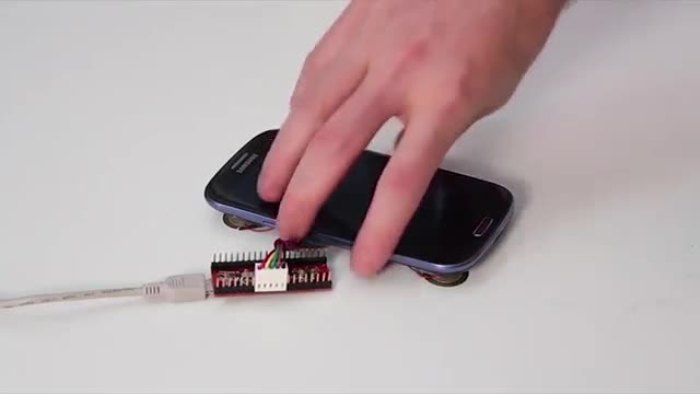Smarten Up: Important Recent Information about Smartphones You Should Know
Think you know enough about your smartphone? You’ll be surprised how that “smart” device you use everyday could be dumbing you down. You may have also heard that it poses health risks but you might be shocked by the fine details. Also, are you properly charging your phone?
You Are Putting Your Brain in Your Pocket
Published on the journal Computers in Human Behavior, a recent study entitled “The Brain in Your Pocket: Evidence that Smartphones Are Used to Supplant Thinking” should serve as a warning for smartphone users. The study (actually a series of studies) found that increased smartphone use can lead to lower analytical thinking as people “offload” their thinking efforts to their smartphones. It supports the idea that smartphone use can be a form of cognitive miserliness.
With 660 participants involved, the study explored the effects of what happens to the brain function in people who excessively rely on their smartphones. It measured various cognitive aspects, from intuitive to analytical, numeracy, and verbal skills. After the measurements on these cognitive aspects were compiled, the smartphone habits of the participants were then evaluated. The participants were then grouped into two: the group of analytical thinkers and the group of intuitive thinkers. Intuitive thinkers were those who often use search engines to solve problems or find information while the analytical ones were those who had the tendency to rely on their own mental abilities.
Basically, the study reveals that smartphones become an extension of the human mind. Many smartphone users tend to forego analytical thinking because they can relegate the task to their smartphones. This tendency, according to the study, was not influenced by the amount of time in using smartphones for social media or entertainment purposes or by the proneness of a person to boredom.
The Presence of Smartphones Alone Could Be Making You Dumb
A study published on the January 2015 issue of Social Psychology also had rather alarming findings on the ownership and use of smartphones. Accordingly, the mere presence of a cell phone alone can bring about distractions. Its presence influences people’s ability to perform complex mental tasks.
In this study, the participants were directed to quickly scan a row of digits and pick consecutive numbers that add to a prespecified total. The participants were divided into two with one group asked to put away their phones and the other allowed to keep their phones with them, conspicuously placed on their desks. For the duration of the test, none of the phones rang, sounded a notification, or was used.
The result: those whose phones were ostensibly placed in front of them scored nearly 20% worse compared to those whose phones were not with them.
Smartphone Display Light Affects Both the Brain and Body
You probably already know that devices with LED lights can harm your health but you may be surprised by how the LED lights on your smartphone displays (for both OLED and LED-backlit LCD screens) can affect you mentally and physically. Based on several studies, there are evidences showing that the blue light coming from smartphone displays can cause sleep problems or disruptions in the Circadian rhythm. These sleep problems, in turn, lead to distracted and impaired memories. A poor night’s sleep makes it harder to learn. Also, the lack of sleep can lead to the buildup of neurotoxins.
Additionally, there are evidences that prove that light blue light from mobile devices disrupts melatonin levels and mess up the hormones responsible for regulating hunger. Melatonin suppression can lead to depression. A dysfunctional production of hunger-regulating hormones, on the other hand, raises the risks of obesity.
There are also studies that reveal the possibility of smartphone screen light being contributory to accelerated retinal damage. It may also lead to the development of cataracts. Moreover, some researchers have found a connection between artificial light exposure at night, disturbed sleep, and the increased risks of developing breast and prostate cancers.
The good thing, however, is that there are companies now that are making efforts in producing “safe screens” for smartphones and tablets. These screens are supposed to considerably reducing the amount of light emitted from the blue and violet spectrum.
Bonus: You Are Probably Charging Your Phone the Wrong Way
If you are just like most other smartphone users, you are probably charging your phone only when it’s about to lose all of its battery charge or when it’s battery is already empty. Also, just like everyone else, you likely wait for the device to indicate a 100% full charge before pulling the charger off. According to Battery University, this is not the right way to charge modern smartphone batteries. To make sure that your lithium-ion batteries last longer, especially if your batteries are not removable, try not to charge it to 100% and plug your phone to the charger whenever you can (when it’s on 90% or lower).
These two habit changes will help you ensure optimal battery performance and will help your batteries last longer. Long periods of charging can put extended stress on the battery, especially when the temperatures get high.

Screenshot from the Toffee YouTube video by the Future Interfaces Group (https://www.youtube.com/watch?v=_Edph1kb4ck)
If you own a smartphone and you think you are affected by the information above, it’s time to do some changes with the way you rely on an electronic web-enabled device. Don’t let your smartphone dumb you down. Perhaps it’s about time to change some habits. Smartphones are undeniably useful but it’s important to make sure you are not underusing your own brain as you use them and that you are not letting smartphones adversely affect your mental and physical health.

